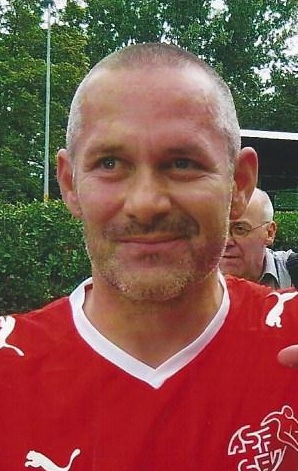
Yvan Quentin is a retired Swiss football defender.
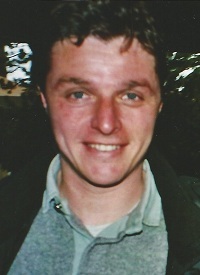
Sébastien Fournier is a Swiss football manager, most recently for FC Sion, and former football player.
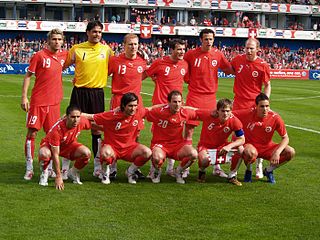
Football is the most popular sport in Switzerland. The Swiss Football Association was formed in 1895 and was a founder member of the sport's international governing body FIFA in 1904. The Swiss cities of Zürich and Nyon are home to FIFA and the European governing body UEFA respectively. The country played host to the 1954 World Cup and 2008 European Championship.
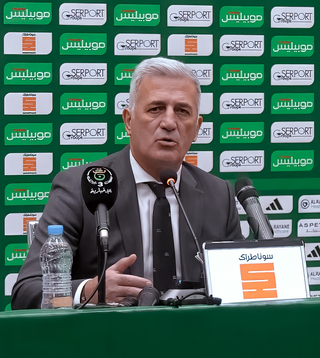
Vladimir Petković is a Bosnian-born Swiss professional football manager and former player. He is currently the coach of the Algeria national team. He was previously the head coach of French side Bordeaux, the Switzerland national team, a string of Swiss clubs, Turkish club Samsunspor, and Italian club Lazio.

The SwissWomen's Super League is the highest-level league competition for women's football clubs in Switzerland. It was established in 1970.
The Swiss Women's Cup is a women's football cup tournament that has been organised annually since 1975 by the Swiss Football Association (SFV-ASF).

Raphaël Wicky is a Swiss football coach and a former player. He was most recently the manager of Swiss Super League club BSC Young Boys, whom he led to a domestic double. He was a defensive midfielder who could also play in defence and was known for his combative style.

Meriame Terchoun is a Swiss footballer who plays for Dijon in the French Division 1 Féminine and for the Switzerland national team.
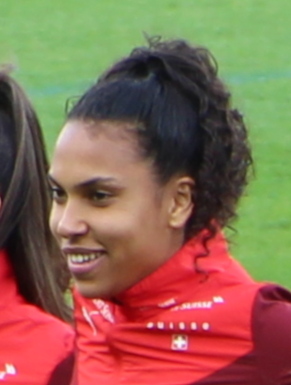
Coumba Louisa Sow is a Swiss footballer who plays as a midfielder for FC Basel in the Swiss Women's Super League and has appeared for the Switzerland national team.

The 2025 UEFA Women's Championship will be the 14th edition of the UEFA Women's Championship, the quadrennial international football championship organised by UEFA for the women's national teams of Europe. The tournament will be played in Switzerland from 2 to 27 July 2025. It will be the third edition since it was expanded to 16 teams. The tournament will return to its usual four-year cycle after the previous tournament was indirectly delayed to 2022 due to the COVID-19 pandemic.
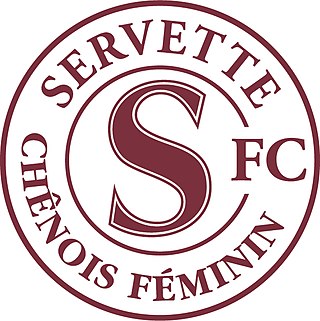
Servette FC Chênois Féminin is a women's football club from Geneva, Switzerland. Its first team plays in the top tier in Switzerland and often in UEFA Champions League.
The bidding process for the UEFA Women's Euro 2025 ended on 4 April 2023 in Lisbon, Portugal, when Switzerland was announced to be the host.
The 2022–23 Swiss Super League is the 126th season of top-tier competitive football in Switzerland and the 20th under its current name and format. With this season, the Swiss Super League became the longest continuously running top-flight national league.
The following is a summary of the 2022–23 season of competitive football in Switzerland.

The 2022–23 Swiss Women's Super League was the 53nd season of top-tier competitive women's football in Switzerland.
Madeleine Boll is a Swiss former footballer who played as a midfielder for Sion, Boll represented the Switzerland national team.
Iman Beney is a Swiss footballer who plays as a midfielder for BSC Young Boys and the Swiss national team.
Tatjana Ingeborg Haenni is a former Swiss soccer player and current official in women's soccer.
Roméo Beney is a Swiss professional footballer who plays as striker for FC Basel in the Swiss Super League. He has been Swiss youth international at various levels.








